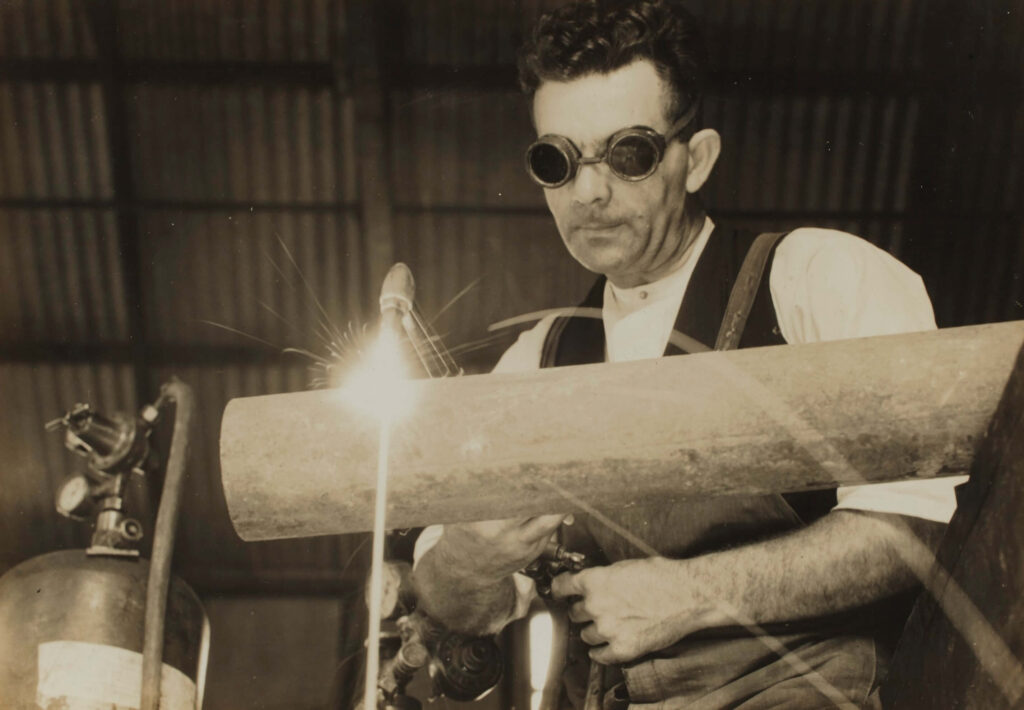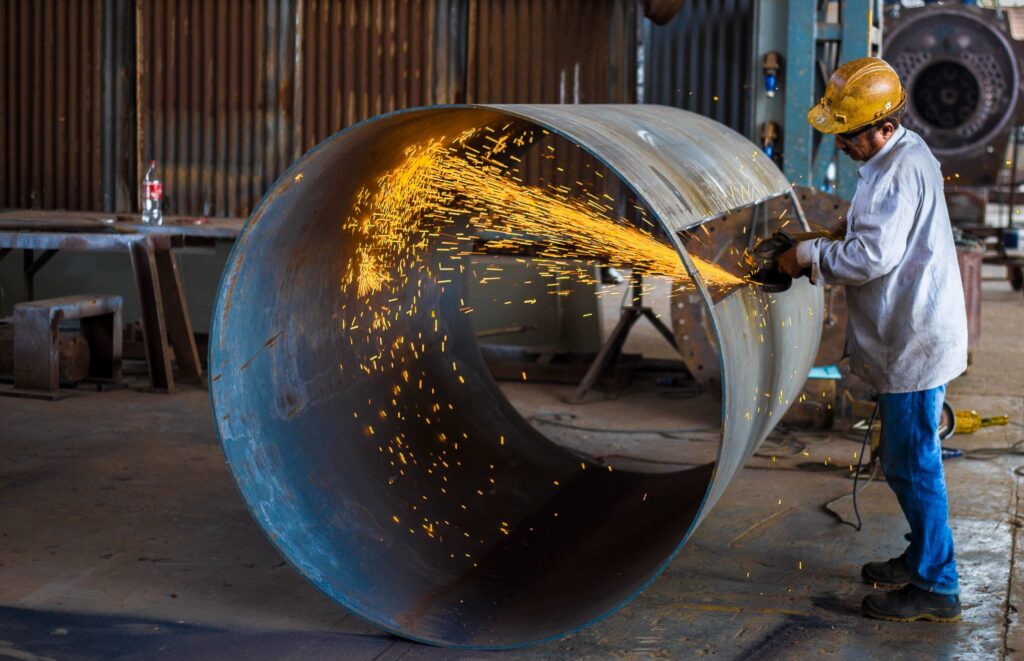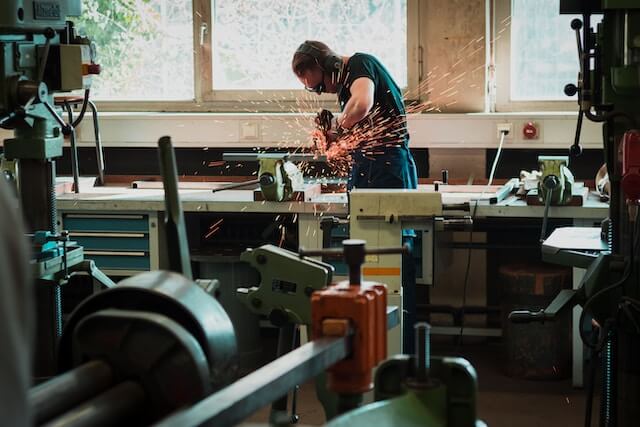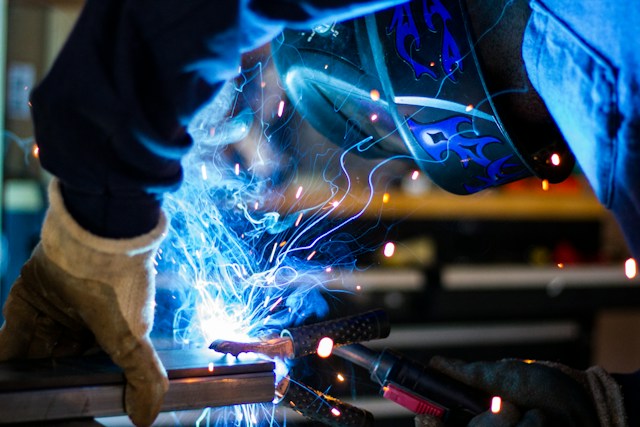Are you pondering that is Welding a Good Career for you? Welding is a lucrative career option that offers a range of opportunities for skilled professionals. The demand for welders is high, and with the right training and experience, you can enjoy a stable and rewarding career. However, it’s important to understand the risks involved in this field, as welding can be hazardous if proper safety measures are not followed.
In this blog post, we will explore the potential of a career in welding, the benefits it offers, and the importance of safety in this profession. Whether you are considering a career change or are just entering the workforce, this post will provide you with valuable insights to help you make an informed decision about pursuing a career in welding and you can also read our complete guide for any career change query.
Key Takeaways:
Job Stability
Welding offers a stable career as it is an essential skill needed in various industries, such as construction, manufacturing, and infrastructure.
Good Earning Potential
Skilled welders have the potential to earn a good income, especially with experience and additional certifications.
Opportunities for Advancement
Welding provides opportunities for career growth, with paths to become inspectors, supervisors, or even start their own businesses.
Global Demand
The demand for welders exists worldwide, providing opportunities for international employment and travel.
Job Satisfaction
For those who enjoy working with their hands and seeing tangible results, welding can be a highly rewarding and satisfying career.
The History and Evolution of Welding

If you have ever wondered about the origins of welding, you’re about to take a journey through time. Welding, as we know it today, has been around for centuries, dating back to the Bronze Age. Back then, the only method of joining metals together was through the use of heated metals. Over the years, various techniques and methods have been developed, leading to the advanced processes and technologies we have today.
Overview of Welding Evolution
One of the earliest forms of welding was forge welding, in which metal pieces were heated in a forge and then hammered together, creating a bond. Fast forward to the 19th century, and the invention of arc welding revolutionized the industry. The ability to create an electrical arc between an electrode and the base metal paved the way for modern welding processes. From there, the introduction of gas welding, resistance welding, and laser welding further expanded the capabilities of the trade.
Innovations and Advancements in Welding
As technology has advanced, so has the field of welding. Today, there are numerous welding techniques, including MIG, TIG, and stick welding, each with its own unique benefits and applications. Additionally, advancements in materials science have led to the development of new alloys and composites, creating new challenges and opportunities for welders. The integration of robotics and automation has also changed the landscape of welding, with automated systems handling complex tasks with precision and efficiency.
Impact of Evolutions and Innovations on Career Opportunities
The evolution of welding has had a profound impact on career opportunities in the industry. With the demand for skilled welders on the rise, the need for individuals with expertise in the latest welding technologies and processes has never been greater. Similarly, the integration of automation and robotics has created new roles for technicians and engineers skilled in maintaining and programming these advanced systems.
Bonus Tip
However, it’s important to note that with these advancements come new safety considerations, as working with high-tech equipment and automation requires diligence and attention to detail. Nevertheless, the opportunities for a fulfilling and lucrative career in welding are abundant and diverse.
Analyzing the Demand for Welders

After considering a career in welding, it’s crucial to understand the demand for skilled professionals in this industry. Analyzing the current and projected need for welders can give you valuable insights into the potential career prospects in this field.
Current and Projected Industry Need for Welders
The demand for welders in various industries remains strong, with a consistent need for skilled professionals to fill open positions. According to the Bureau of Labor Statistics, the employment of welders, cutters, solderers, and brazers is projected to grow 3 percent from 2020 to 2030, which is in line with the average for all occupations. This growth is driven by the ongoing need to repair and maintain aging infrastructure and construction projects.
Bonus Tip
Additionally, the retirement of experienced welders is creating job openings for new welders entering the field. This means that there are ample opportunities for skilled individuals to secure stable employment in the welding industry.
Role of Globalization in Enhancing Welding Career Prospects
Globalization has also played a significant role in enhancing the career prospects for welders. The increasing interconnectedness of economies has led to a rise in the demand for high-quality metal products and components. As a result, industries such as manufacturing, construction, and automobile production are seeking skilled welders to contribute to the production of goods and infrastructure.
Furthermore, the globalization of trade has opened up opportunities for welders to work on international projects, providing them with the chance to explore different cultures and work environments. This not only enriches your experience but also opens up a wider range of career possibilities for you as a welder.
The Role and Responsibilities of a Professional Welder

Now that you have considered pursuing a career in welding, it is important to understand the role and responsibilities of a professional welder. If you are still unsure about whether welding is the right career path for you, you can read more about the opportunities and benefits of a welding career here.
Daily Duties and Activities of a Welder
As a welder, you will be responsible for joining metal parts together using various welding processes such as MIG, TIG, or stick welding. Your daily activities may include interpreting blueprints, selecting appropriate materials, and operating welding equipment. You may also be required to inspect and test welded surfaces to ensure they meet quality and safety standards.
Bonus Tip
Additionally, you may need to perform routine maintenance on welding equipment and tools to ensure their proper function.
Skills, Knowledge, and Attributes Needed
Welding requires a combination of technical skills, knowledge, and personal attributes. You will need to have a strong understanding of metallurgy, blueprint reading, and welding techniques. Attention to detail, hand-eye coordination, and physical strength are essential traits for a successful welder.
Bonus Tip
Additionally, problem-solving skills and the ability to work well under pressure are valuable attributes in the field of welding.
Career Advancement Opportunities for Welders
There are ample opportunities for career advancement in the welding industry. With experience and additional training, you have the potential to become a welding inspector, supervisor, or even a welding engineer. You may also choose to specialize in a specific type of welding, such as underwater welding or aerospace welding.
Bonus Tip
As a skilled welder, you have the potential to work in a variety of industries, including construction, manufacturing, and maintenance, allowing for a diverse and fulfilling career.
Benefits of Pursuing a Career in Welding

Lastly, pursuing a career in welding comes with a multitude of benefits that make it an attractive and rewarding profession. From competitive wages to job stability, the welding industry offers numerous advantages for those who choose to enter this field.
Wage and Employment Trends in Welding
When considering a career in welding, one of the most enticing aspects is the potential for competitive wages. Skilled welders are in high demand, which often leads to higher pay rates. Additionally, as you gain experience and expertise in various welding techniques, you can increase your earning potential.
According to the Bureau of Labor Statistics, the median annual wage for welders, cutters, solderers, and brazers was $44,190 in May 2020, with top earners making more than $64,240. Furthermore, with the construction and manufacturing industries constantly in need of welders, there is a high level of job security, making it a stable and reliable profession.
Job Stability and Honest Work Culture in the Welding Industry
In the welding industry, job stability is a significant factor to consider. Skilled welders are essential in numerous sectors, including construction, automotive, aerospace, and manufacturing. As a result, the demand for welding expertise remains consistently high, providing stable employment opportunities for those pursuing a career in this field.
Bonus Tip
Additionally, the welding profession often fosters an honest work culture, where your skills and dedication directly impact your success. The satisfaction of contributing to building essential infrastructure and products further adds to the integrity and fulfillment of working in this industry.
Personal Satisfaction and Independence in the Welding Field
Another compelling aspect of pursuing a career in welding is the personal satisfaction and independence it offers. As a welder, you have the opportunity to see the tangible results of your work, whether it’s constructing a building’s framework or repairing heavy machinery.
This sense of accomplishment can be incredibly rewarding, as you witness the physical manifestation of your skills. Furthermore, many welders enjoy a level of independence in their work, often having the freedom to work on various projects and undertake diverse challenges. This autonomy can provide a fulfilling sense of control and creativity in your career.
Challenges and Risks Associated with a Welding Career
Despite the numerous benefits and opportunities that come with a welding career, there are several challenges and risks associated with this profession. It is important to be aware of these potential obstacles before pursuing a career in welding so that you can make an informed decision about whether this path is right for you.
Physical and Environmental Risks
One of the most significant challenges of a welding career is the exposure to physical and environmental risks. As a welder, you will be working with high temperatures and molten metal, which can pose a serious risk of burns and eye injuries if proper safety measures are not followed.
Bonus Tip
Additionally, the fumes and gases produced during the welding process can be hazardous to your health if inhaled. You will also be working in various environmental conditions, including confined spaces and heights, which can increase the risk of accidents and injuries.
Economic Risks and Market Fluctuations
Another challenge in a welding career is the economic risks and market fluctuations that can impact job stability and income potential. The demand for welders is heavily influenced by the overall health of the economy, as well as specific industries such as construction, manufacturing, and infrastructure development.
During economic downturns, the demand for welding services may decrease, leading to potential layoffs and income instability. Additionally, the rapid advancement of technology and automation in welding processes can also affect job opportunities and the need for skilled welders.
Ultimately, Welding Offers a Solid Career Path
When considering a career in welding, you may have some doubts about its potential for growth and stability. However, the truth is that welding is a field with a promising future. According to a recent article from Anderson Dahlen, the demand for skilled welders is on the rise, making it a lucrative and secure career choice.
With advancements in technology and an increasing need for infrastructure development, the job outlook for welders is looking brighter than ever. By pursuing a career in welding, you can position yourself for a stable and rewarding future in a field with plenty of opportunities for growth and advancement. Business Is Booming: Why Welding Jobs Are on the Rise
Is Welding a Good Career: Conclusion
Ultimately, welding can be a highly rewarding career choice for individuals who are interested in working with their hands, have a strong attention to detail, and enjoy problem-solving. The demand for skilled welders is on the rise, making it a stable and potentially lucrative career path.
Additionally, the versatility of the skills you acquire as a welder can open the door to a wide range of job opportunities in various industries, from construction and manufacturing to aerospace and automotive. With the right training and dedication, you can build a successful and fulfilling career in welding.
Bonus Tip
In conclusion, if you are considering a career in welding, it is important to weigh the potential benefits and challenges, as well as your personal interests and skills. With the right mindset and a commitment to continuous learning, welding can offer you a promising and dynamic career path with opportunities for growth and advancement. Don’t underestimate the potential of welding as a career choice, it could be the perfect fit for you.
People also asks – Is Welding a Good Career?
What is welding?
Welding is a process of joining two or more pieces of metal together using heat and pressure. This is often done using a welding machine that creates an electrical arc, melting the metal and forming a strong bond when cooled.
Is welding a good career choice?
Yes, welding can be a very rewarding career choice. Skilled welders are in high demand across various industries such as construction, manufacturing, automotive, aerospace, and shipbuilding. Additionally, welding offers good earning potential and opportunities for career advancement.
What skills are needed to become a successful welder?
Successful welders possess a strong attention to detail, hand-eye coordination, and the ability to work with precision tools and equipment. They also need to have a good understanding of different welding techniques and materials, as well as the ability to interpret blueprints and technical drawings.
Are there job opportunities for welders?
Yes, there are abundant job opportunities for welders. As infrastructure continues to develop and manufacturing industries expand, the need for skilled welders will remain constant. Additionally, welders can find work in diverse settings, from construction sites to fabrication shops and industrial plants.
What are the potential risks of a welding career?
Welding can pose certain risks, including exposure to fumes and gases, as well as the potential for burns, eye injuries, and other physical hazards. However, with proper safety training and the use of personal protective equipment, such risks can be significantly mitigated, making welding a safe and fulfilling career choice.

Author Bio
Brian Bertrand
Brian Bertrand is an experienced resume writer with over five years of expertise in catapulting clients to their dream jobs. Through collaborations with renowned freelance platforms and esteemed online resume service brands, he has carved a niche for himself by delivering personalized, top-notch resumes that encapsulate the very essence of each client’s accomplishments, skills, and character. Diligent in his approach, Brian’s innovative flair and unwavering commitment to his craft make him a trusted partner in the pursuit of professional success. With an insistent curiosity for diverse industries and career trajectories, Brian strives to ensure that each resume he creates stands out from the competition. Whether you’re an aspiring graduate, a career switcher, or a seasoned pro, Brian possesses the expertise to craft a resume that truly reflects your unparalleled value and potential.

